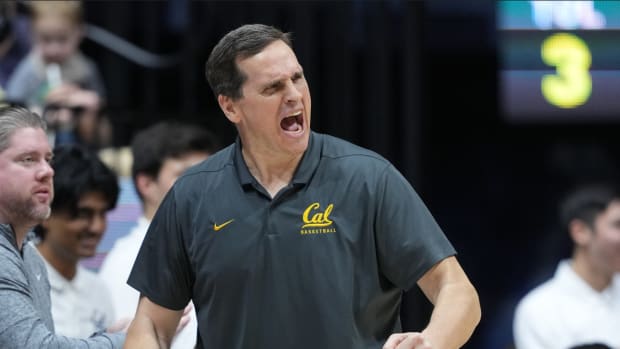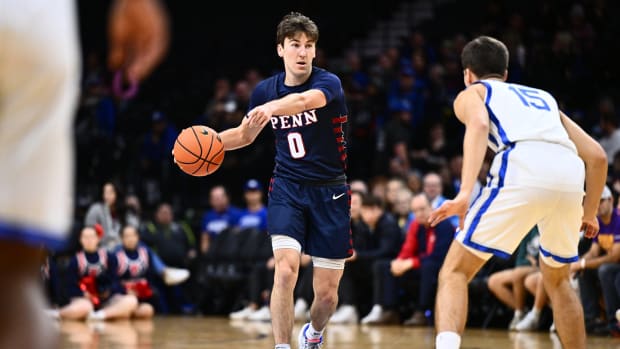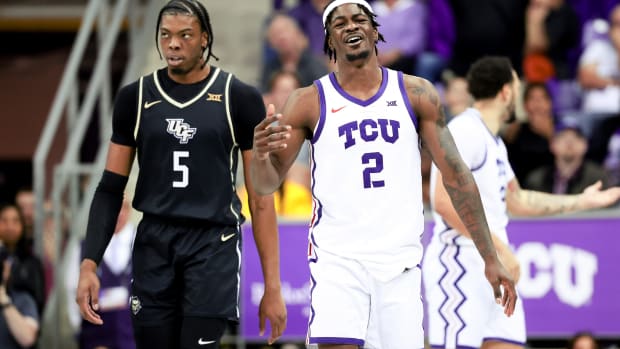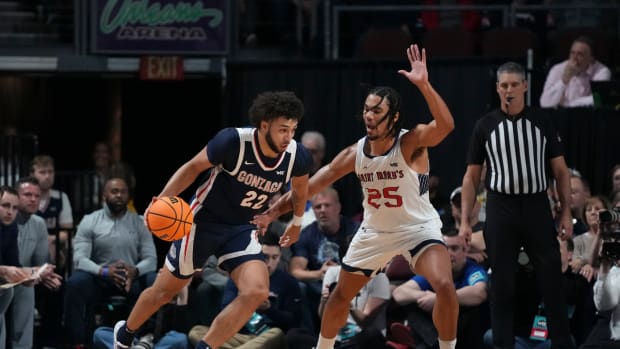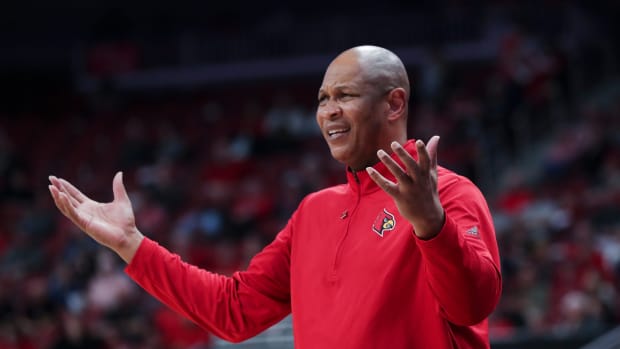NCAA, Memphis Enter Uncharted Territory as Tigers' James Wiseman Decision Comes Home to Roost
It must have been an intoxicating rush, on that Friday in November, for Memphis administrators to wave middle fingers in the general direction of Indianapolis, to tell the NCAA, “Hell no, we won’t bench James Wiseman.” It must have been a giddy feeling when the fans backed the posturing and ignored the consequences of willingly using a likely ineligible player. Rebellion can be a hell of a drug.
Now here comes the sober aftermath.
The investigation into Memphis’ Wiseman Rebellion is happening, and it’s happening in a completely different venue. The Tigers are the first crash-test dummy for the NCAA’s newly created “off ramp” into the realm of independent parties as investigators, advocates, judge and jury. This is all terra incognita.
The NCAA announced the case Wednesday, which in itself is a departure from standard protocol. Normally, the governing body doesn’t say a damn thing about investigations into rules violations, giving the schools and themselves cover. But within the Independent Accountability Resolution Process—a byproduct of the Condoleeza Rice-led commission on college basketball—some of the rules are changed.
Being publicly outed as under investigation is the first unwelcome byproduct of the independent process. The second one comes at the back end: there is no appeal to whatever ruling is made. If the school gets hammered with major sanctions, it has no recourse.
The independent adjudicative process was created primarily for two kinds of cases: those with extremely nuanced and complicated issues, and those that are unusually adversarial. By its own actions, Memphis checks the latter box.
When the school was informed that star freshman 7-footer Wiseman—the centerpiece of the nation’s No. 1 recruiting class—was likely ineligible, the expectation was that he would be benched while awaiting a ruling on the number of games he’d have to sit out. The case stemmed from $11,500 in moving expenses the Wiseman family received while in high school for matriculating from Nashville to Memphis to play high school ball for Penny Hardaway—who happened to be a University of Memphis legend and shortly thereafter became the coach of the Tigers. Not shockingly, Wiseman then chose to attend Memphis.
Instead of sitting out, though, Wiseman obtained an emergency temporary restraining order in Memphis court to keep playing. This gambit was accompanied by some bravado-laced statements from the school, including this gem from athletic director Laird Veatch:
“The University of Memphis is enjoying a tremendous period of positive momentum and success on multiple fronts including the excitement surrounding our men’s basketball program. This matter is extremely unfortunate and frustrating at this special time in our history. We will continue to be cooperative, respectful and professional in our dealings with the NCAA, while availing ourselves of every resource in the best interests of our student-athletes, our coach, and our University. It is clear to me in my short time here that Memphians will stand up and fight, both for each other and for what is right, and I am proud to stand with them.”
Yes, it was a real inconvenience to have impermissible benefits discovered just when the Tigers were trying to win games and get back to the NCAA tournament for the first time since 2014. So let’s pick a fight we can’t win!
Wiseman appeared in three games for the Tigers—wins over South Carolina State and Illinois-Chicago, then a loss to Oregon—scoring 59 points and grabbing 32 rebounds. Then, when everyone apparently realized that this wasn’t a sustainable strategy, the school abruptly agreed to sit Wiseman.
The NCAA ruled that he would miss 12 games. Memphis appealed. The suspension was upheld. He would be back in mid-January, with a chance to lead the Tigers to the tourney.
And then in December, in the last twist that made this such a fool’s errand for the school, Wiseman said never mind, he’s not coming back, I’ll sit this whole college thing out and prepare for the NBA draft. His Memphis legacy: two wins, one loss, one major infractions case. Meanwhile, the Tigers are 20-9 and sweating out life on the Big Dance bubble.
So now we find out how this new process is going to work. The case wound up in the Independent Accountability Resolution Process via an Infractions Referral Panel, which can receive recommendations from three places: NCAA Enforcement, headed by Jon Duncan; the Committee on Infractions, chaired by Xavier athletic director Greg Christopher; or the institution itself. (The general belief within the NCAA membership is that schools would be reluctant to request this resolution because of the unknown — nobody has ever been down this road before.)
From here, the process is in the hands of independent professionals who comprise the Complex Case Unit: independent investigators, who take the place of the NCAA’s in-house investigators, and an independent defense team that will advocate for the school in place of outside counsel hired by the university.
From there, the case will go to a five-member independent resolution panel, which takes the place of the Committee on Infractions. That group will make a ruling and if penalties are assessed, they will be in line with the NCAA’s pre-existing sanctions matrix.
In this case, playing someone who has been declared likely ineligible—with the full public backing of the university president and athletic director—seems like the epitome of lack of institutional control. If Memphis is charged with that and the sanction is upheld, the penalty would be significant. And, again, there is no avenue for appeal.
This is the fight Memphis chose, with an unfamiliar referee and unfamiliar corner men. Perhaps it will win the case and avoid major sanctions, but perhaps not.
The brief burst of bravado in early November must have felt good. But here in March, the bills are coming due.

